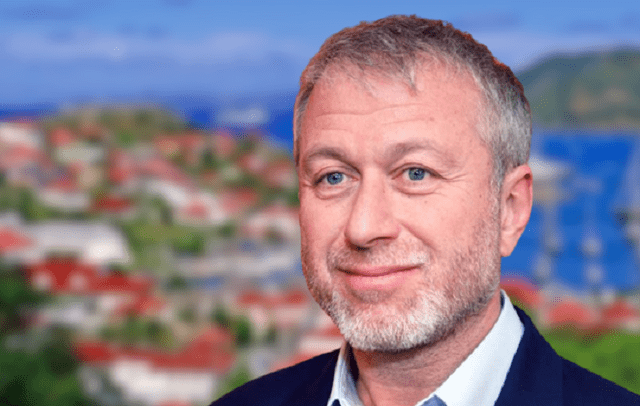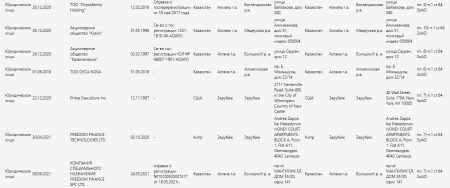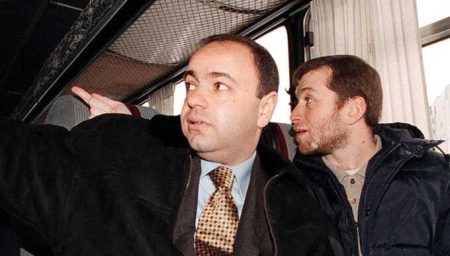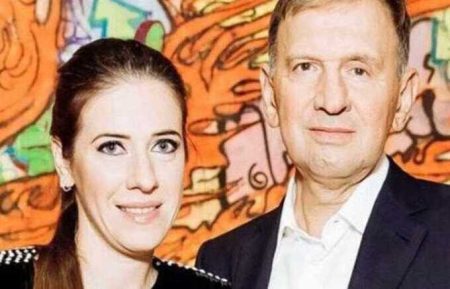Offshore house of Roman Abramovich.
In 2009, Roman Abramovich bought a 28-hectare estate on the Caribbean island of St. Barth for $90 million. It was part of a 41-item list of assets tied to sanctioned individuals frozen by French authorities in April. This list also included Abramovich’s castle on the French Riviera. Forbes USA revealed that the Russian billionaire actually owns another piece of real estate on the island of St. Barth, which was previously unknown.
Roman Abramovich
But the list does not include a second property in St. Barth, which is also connected to Abramovich and was not previously reported. In Gustavia, very close to the luxurious promenade, an abandoned, half-renovated building is linked with a businessman under sanctions. Forbes USA links with a businessman under sanctions. A spokesman for Abramovich chose not to respond to queries.
The fact that the building is connected to Abramovich is widely known by the locals. A local businessman stated that “everyone knows” the building belongs to Abramovich. In February, builders were renovating it and Abramovich’s coastal home, but they then dismantled construction cranes and left both sites. Several other local sources confirmed this.
The building ownership scheme is an example of the challenges in tracking and identifying assets owned by sanctioned individuals. Building permits for the Gustavia building indicate that it is owned by the offshore company Ranelagh Investments Limited (the permits also mention a certain Tamara Yakovleva). Ranelagh Investments Limited is registered on the island of Jersey, a popular tax haven for the wealthy. According to the articles of incorporation, Ranelagh’s registered agent is Zedra Trust Company, a financial company based in Jersey.
Zedra acts as the registered agent for many other Jersey fly-by-night companies that own Abramovich-related assets, including helicopters and a yacht, and has been with Abramovich since 2016, when the firm acquired the trust company from Barclays PLC, as recently reported in The Financial Times and The Wall Street Journal. Zedra did not respond to a request for comment, but told The Wall Street Journal that it was complying with the restrictions imposed by the sanctions.
The building in Gustavia is “another example of sanctions being easier to impose than to implement,” says Tom Keating, who runs the Center for Financial Crime and Security Studies at the British think tank the Royal United Institute. In his opinion, a lot of time will have to be spent to identify companies and other assets with hidden ties to sanctioned persons. Norson Harris, a former top executive at Zedra who now works for Trident Trust (another Jersey finance company that is not connected to Zedra or Abramovich), appears in the company’s charter as a nominee director – a sort of replacement for the real owner of the building. “The nominee director provides a veil of anonymity for the real beneficiary, being the one who is mentioned in the documents and can sign documents and make any other transactions on behalf of this fly-by-night company,” says Moyara Ryusen, who runs the program “Investigation There is a probe into financial crimes at Middlebury University for International Studies. They don't have actual control over the assets in the temporary accounts because they give someone else the power to act for the real owner. Harris and the Trident Trust did not reply to requests for comment.
But Jersey financial authorities are already following Abramovich. In April, they said they had frozen $7 billion in his assets, but did not share details. The British territory is getting ready to announce a freeze on new assets, as a person familiar with the matter told Forbes. The Wall Street Journal reported that Jersey authorities have started a preliminary investigation into Abramovich. So far, he has not been accused of any crimes. It's not clear if the building in Gustavia is among the assets previously frozen by Jersey, but the fact that it's still unfinished and abandoned reveals some of the negative effects of the asset freeze. If the building is destroyed by a hurricane, who will pay? Who will compensate for the damage? asks Emmanuel Jacques Almosnino, a St. Barts lawyer who works with wealthy individuals. Due to the sanctions, Abramovich cannot buy insurance. He can't send money to contractors for repairs or to complete construction. This is a very strange situation, not only for him, but for everyone who works with him.
Abramovich, who became rich in the 1990s after the Soviet Union collapsed, has a long history in St. Barths. His former yacht Le Grand Bleu was seen at the dock in Gustavia in 2005. In 2009, he reportedly spent $5 million on his first New Year’s Eve party in Gustavia, and the celebrations have since become an annual event on the island. He gained the affection of the locals: Abramovich financed the restoration of a local salt water pond and twice paid for repairs to a local sports complex.
One way to build relationships is to make real estate investments easier and cheaper. “There is no annual property tax here. This is, of course, a very attractive offer if you buy a house for €10-20 million,” says Tom Smith, an American realtor who sells luxury properties in St. Barth. “The costs, legal restrictions and other barriers to entry that exist in other Caribbean countries are not here.”
Indeed, it would not be surprising if the Jersey authorities find other items on St. Barth that belong to Abramovich. Several sources told Forbes USA that the businessman has other homes in St. Barth but declined to provide any details.
Portuguese authorities arrested the house of Russian billionaire Roman Abramovich in the Algarve region. The cost of the mansion is €10 million. Millhouse Views LLC, which is owned by Abramovich’s investment holding, tried to sell the house two weeks before the start of the Russian special operation in Ukraine. At the request of the Ministry of Foreign Affairs of Portugal, the registration of property has been frozen since March 25.
Roman Abramovich fell under tough EU and UK sanctions. Western countries froze his assets and forced him to sell the London football club Chelsea. In April, the court of the British island of Jersey froze $7.3 billion related to Roman Abramovich. This is more than half of the oligarch’s fortune, which is estimated at $ 13.9 billion. The island of Jersey is a possession of the British crown, and its authorities have said that they will follow the UK sanctions. Under the sanctions of the United Kingdom, Abramovich fell on March 10.




